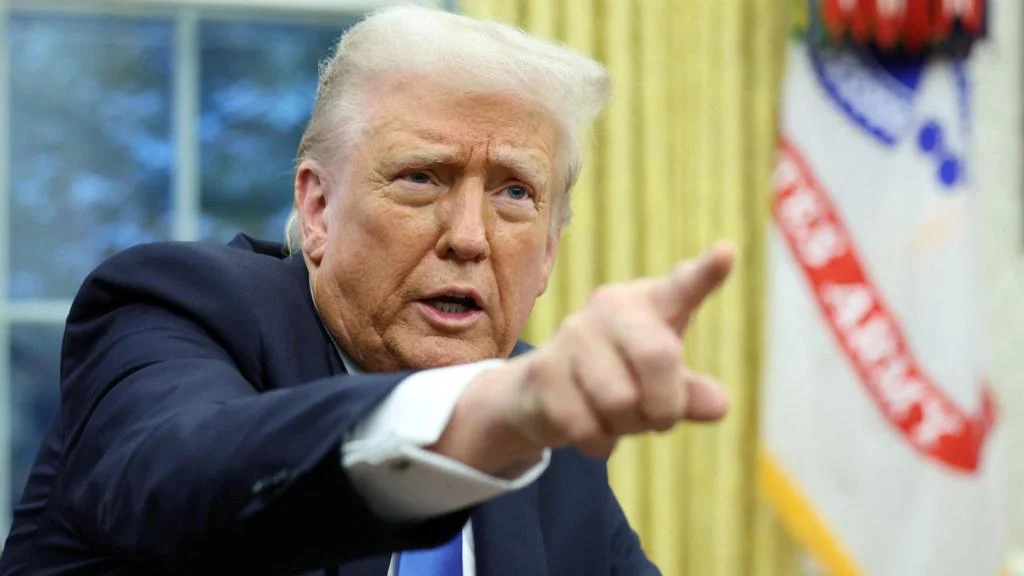Trump bans travel from 12 countries to the US

US President Donald Trump has signed a sweeping new executive order banning entry to the United States from 12 countries and imposing partial travel restrictions on seven more, in a move critics liken to his controversial 2017 travel ban.
The announcement, made on Thursday, comes just days before the new rules take effect on 9 June.
The list of fully banned countries includes Afghanistan, Haiti, Iran, Somalia, Libya, Yemen, Sudan, Eritrea, Myanmar, Chad, Congo-Brazzaville and Equatorial Guinea.
Citizens from these nations will be barred from entering the US entirely, although exemptions apply to certain athletes, Afghan nationals who worked with the US government, and dual citizens with passports from unaffected countries.
An additional seven countries — Burundi, Cuba, Laos, Sierra Leone, Togo, Turkmenistan and Venezuela — will face partial restrictions, though the nature of those limitations has not yet been fully detailed.
“We don’t want them,” Trump declared during a press briefing, invoking Sunday’s attack in Boulder, Colorado, where 12 people were injured during a pro-Israel rally.
Authorities have charged Mohamed Sabry Soliman, an Egyptian national, with the assault, although Egypt was notably absent from the list of banned nations.
The White House said the ban is aimed at “protecting Americans from dangerous foreign actors” and will be reviewed periodically based on countries’ compliance with US vetting standards.
The proclamation instructs US officials to immediately begin talks with the affected nations about enhancing their cooperation with US immigration and security protocols.
Trump's move echoes the executive order he signed during his first term in 2017, which banned travel from several Muslim-majority countries.
That order sparked international protests and was eventually upheld by the Supreme Court in a revised form.
Thursday’s announcement, the first major immigration action since Trump returned to office, delivers on a campaign promise and has already drawn strong criticism from rights advocates and legal experts.
Robyn Barnard, an immigration lawyer with Human Rights First, described the new restrictions as “truly punitive,” saying they unfairly target vulnerable populations fleeing persecution, war, or authoritarian rule.
“There’s no logical thread connecting the countries on this list,” Barnard told the BBC’s Newsday programme.
“This is less about national security and more about exclusion and chaos.”
The administration's approach was defended by Republican Congressman Clay Higgins, who sits on the House Homeland Security Committee. Speaking to BBC Radio 4’s Today programme, Higgins argued the measure is necessary because “some who came legally later committed terrorist acts.”
He added, “Travelling to the US is a privilege, not a right,” and said Americans have “had enough of immigrants coming to our country, violating our laws and committing violence among our people.”
Higgins dismissed criticism of the ban’s inconsistencies — including Egypt’s omission from the list — by emphasising that the US must prioritise its ability to vet applicants securely.
Trump’s announcement did not stop at immigration policy. On the same day, he suspended all foreign student entries to Harvard University for six months, citing unspecified national security threats.
Harvard responded by calling the move “retaliatory,” asserting it would continue to support its international student community.
According to Reuters, university officials believe the suspension is politically motivated, though the White House offered no direct evidence.
In a further escalation of political tensions, Trump also ordered an investigation into his predecessor, Joe Biden, accusing Biden’s aides of conspiring to “deceive the public” about his mental fitness during his presidency.
Trump called it “one of the most dangerous and concerning scandals in American history,” a claim the Biden team dismissed as “ridiculous.”
Legal experts are bracing for a flurry of lawsuits against the travel ban. The American Civil Liberties Union (ACLU) has already indicated it will challenge the order in court, as it did in 2017.
"This ban targets Black and brown immigrants and violates basic principles of equality and justice," the organisation said in a statement.
Trump, however, insisted the ban was “essential” to protect national security. “We can’t have open migration from countries where we cannot safely and reliably vet people,” he said.
As the 9 June implementation date approaches, diplomatic channels have been activated to discuss compliance with US requirements.
However, with many of the affected countries already mired in conflict, weak governance, or hostile relations with Washington, the likelihood of swift revisions to the ban list remains uncertain.
Despite opposition, Trump appears resolute. “This is just the beginning of restoring law and order to our borders,” he said.



0 Comments